AI won’t replace customer service agents and is more likely to enhance them by providing real-time, context- and sentiment-aware automated answers or response suggestions. Agents will continue to handle edge cases and delicate issues.
Why are we confident about this claim? Read on.
Automate your customer service with Lyro AI agent
AI in customer support is already handling the basics (and even more than that)
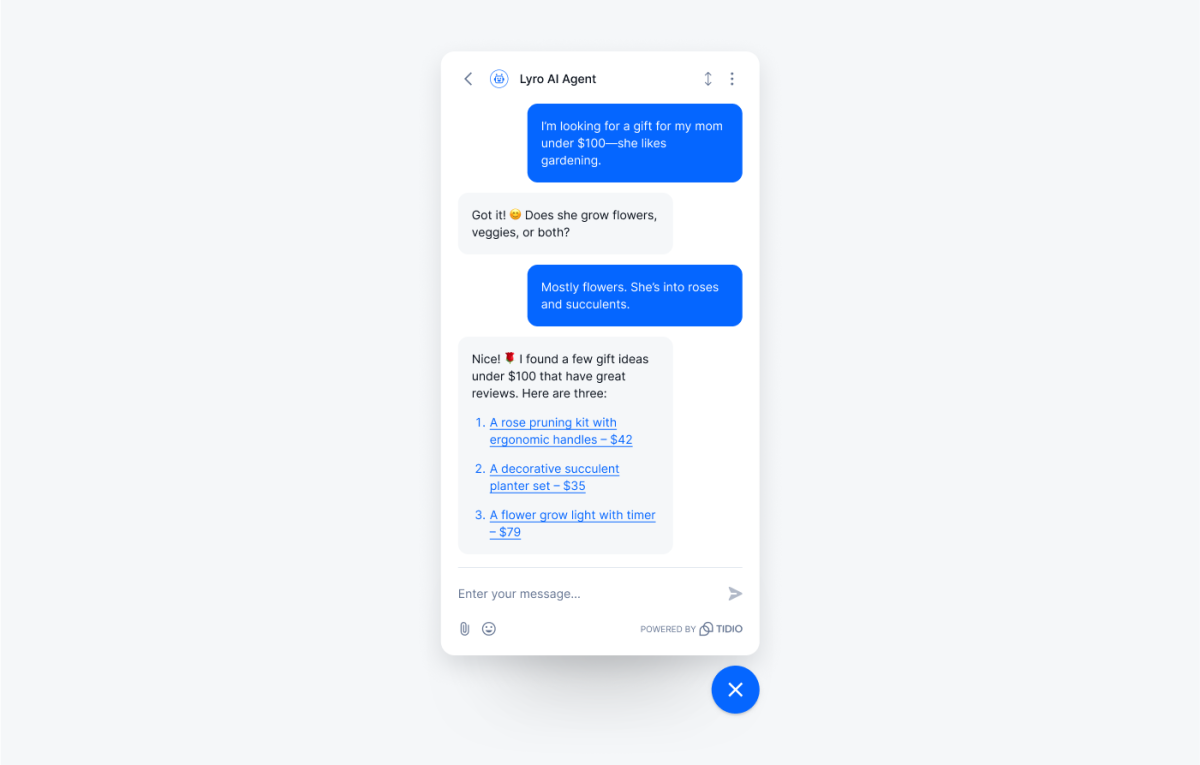
AI-powered tools like AI agents are already running the front lines of customer support AI solutions. Chatbots resolve simple questions about shipping, returns, or password resets.
Machine learning models route tickets based on issue type, customer sentiment, or language. Some systems can even auto-tag and prioritize tickets based on urgency. In fact, 70% of global customer service managers are using generative AI in customer service to analyze customer sentiment.
Shopify’s AI bots handle over 69% of customer inquiries without a human ever getting involved. For example, Amazon’s Alexa uses natural language processing (NLP) to help users manage orders, ask delivery questions, or track packages.
These tools aren’t perfect, but they’re getting better, and fast. According to Gartner, by 2027, chatbots will become the primary customer service channel for a quarter of all organizations.
Tidio’s AI agent Lyro, for example, can resolve up to 67% requests, which can range from the most basic ones like FAQs to more complex ones like scheduling sales calls and generating leads.
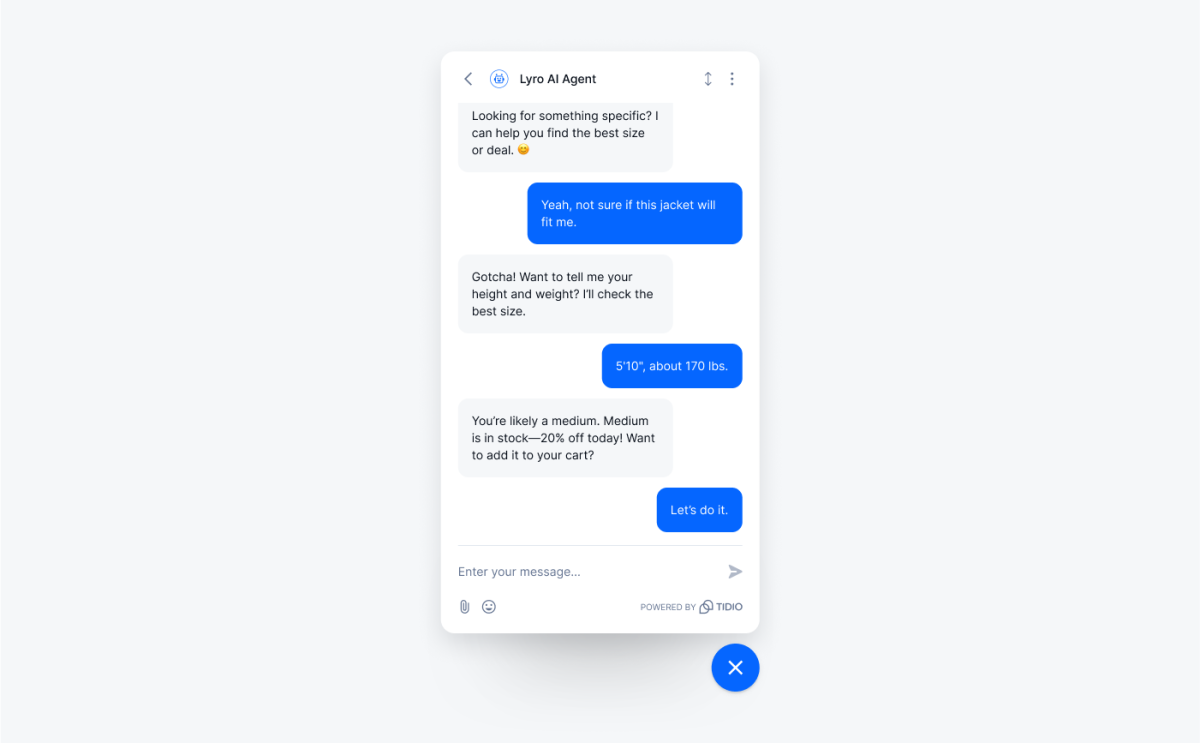
Read more: Learn 200+ relevant customer service statistics to help you gain valuable insights into the CS industry.
Why the adoption of AI-powered customer service is accelerating
The pressure to do more with less is pushing AI forward. CEOs attending Yale SOM’s CEO Summit put customer service right at the top of their transformation list. In fact, 31% of them stated customer service as the industry where AI has the biggest transformational potential.
Companies want to cut costs without sacrificing customer experience. They need 24/7 support, but staffing a global team is expensive. They’re scaling fast, but hiring takes time. AI helps fill the gap.
There’s also a tech shift happening: APIs, cloud infrastructure, and pre-trained language models like GPT make AI tools more accessible than ever. You no longer need a data science team to get started.
A McKinsey report found that 63% of companies using AI in customer operations reported revenue increases, while 44% saw cost savings.
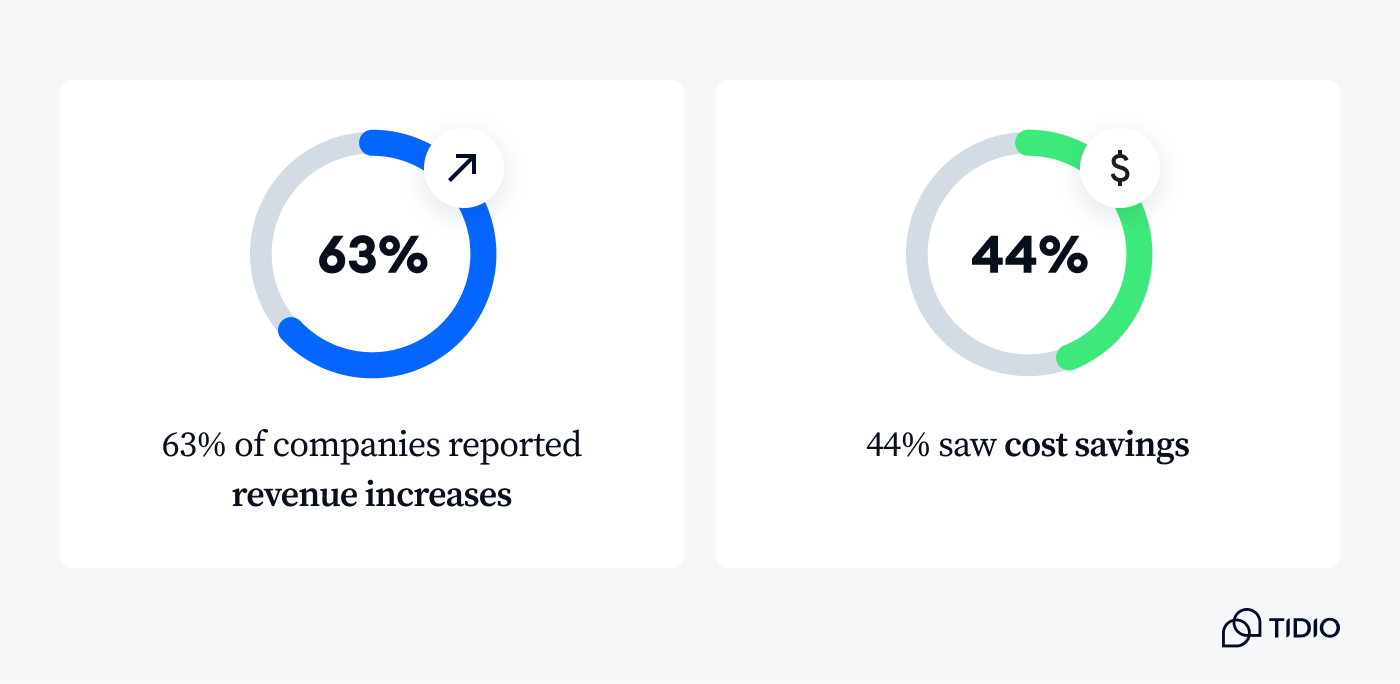
Read more: Discover which companies use AI-generated customer support.
Where AI in customer service performs best
AI excels at tasks with clear rules and patterns, and the benefits of AI in customer service are numerous. The gist? Think high-volume, low-emotion interactions.
- Transactional queries: “Where’s my order?” “How do I reset my password?”
- Pattern recognition: detecting duplicate tickets or matching replies to known solutions.
- Multilingual support: AI translation tools let teams support global customers with fewer native speakers.
- Response speed: bots reply instantly, even during peak hours. That means no wait times.
It’s also ideal for maintaining consistency. Unlike humans, AI doesn’t forget policies or get tired.
Gartner reports that by 2029, agentic AI will autonomously resolve 80% of common customer service issues without human intervention, leading to a 30% reduction in operational costs.
Where AI customer service still falls short
AI isn’t great at handling nuance. It struggles with emotion and edge cases.
Let’s say a customer wants a refund but doesn’t directly say “refund.” They hint at frustration, say the product was a gift, and that it didn’t meet expectations. A human reads between the lines. A bot might miss the point entirely.
Then there’s context. A repeat buyer complaining for the first time is different from a chronic complainer. Humans can judge when to bend the rules or escalate quickly. AI lacks that intuition.
And let’s not forget tone. AI might misinterpret sarcasm or humor. Or worse, respond too literally and make the customer feel unheard.
In fact, 20% of customers still prefer human agents for complex or emotionally charged issues.
Will AI replace human agents, or just change their role?
The support agent role is evolving. And while AI tech won’t erase these jobs, it will definitely reshape them.
The repetitive stuff? That’s going away. But the strategic stuff is becoming more valuable. Agents will spend more time solving complex problems, handling exceptions, and gathering product insights.
Support roles are already shifting toward titles like “Customer Experience Analyst,” “CX Strategist,” and “AI Trainer.” These roles focus on interpreting feedback, improving systems, and guiding automation.
In short: AI does the grunt work. Humans bring judgment, as empathy still wins in CX.
When customers are frustrated, they want something more than a rapid response with perfect grammar; they also want to feel heard. Empathy builds loyalty. It drives retention. It can be emulated by AI but it may not feel the same to all.
Research shows that customers who feel emotionally connected to a brand are 52% more valuable over time. That’s why human interactions still matter, especially for high-value accounts or sensitive issues.
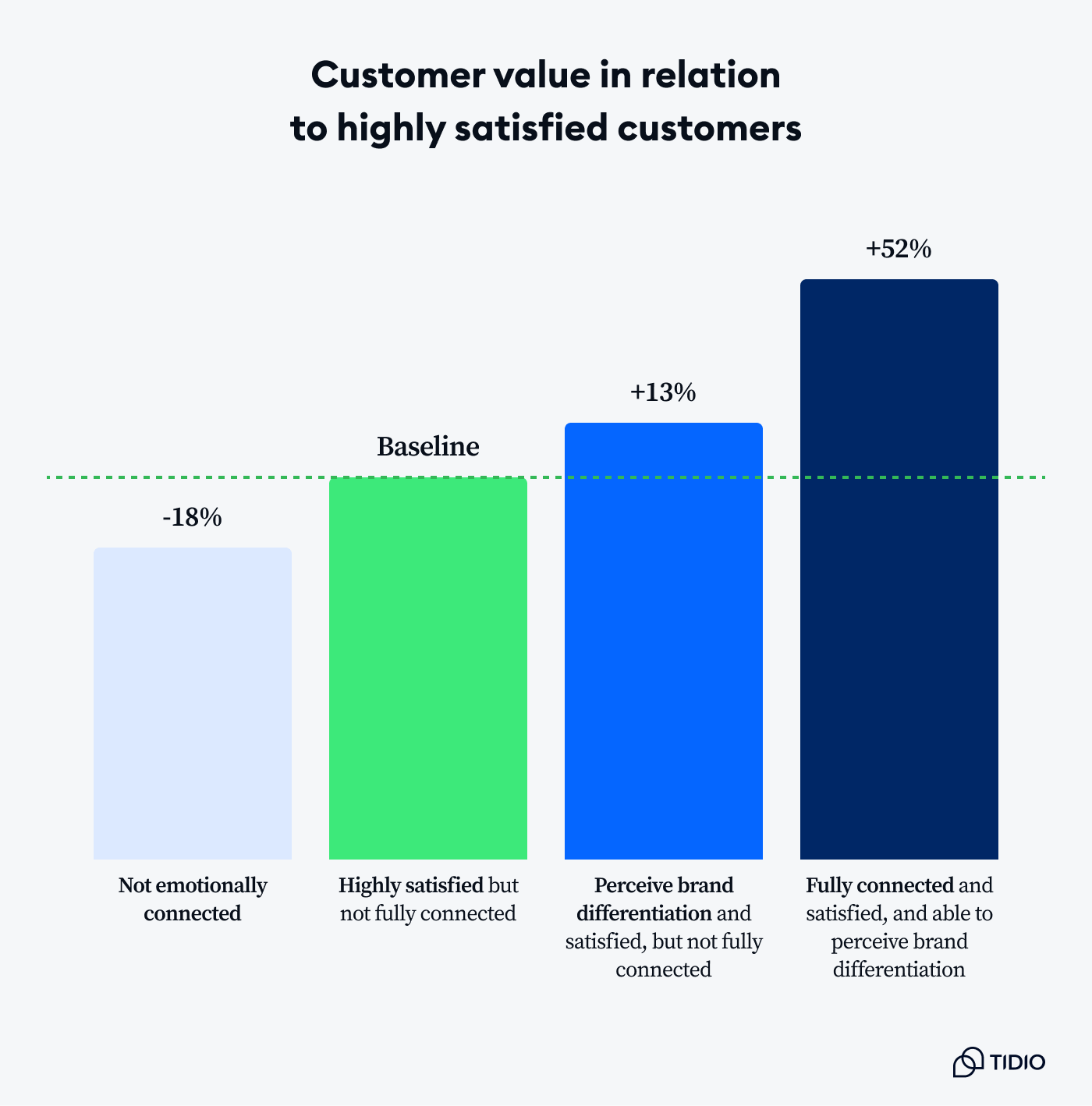
Tools like AI can speed things up. But only humans can make customers feel cared for.
Read more: Check out these crucial AI customer service statistics to help you better understand the impact of AI in customer service.
Real-world example: Lyro AI agent is blending AI and human support
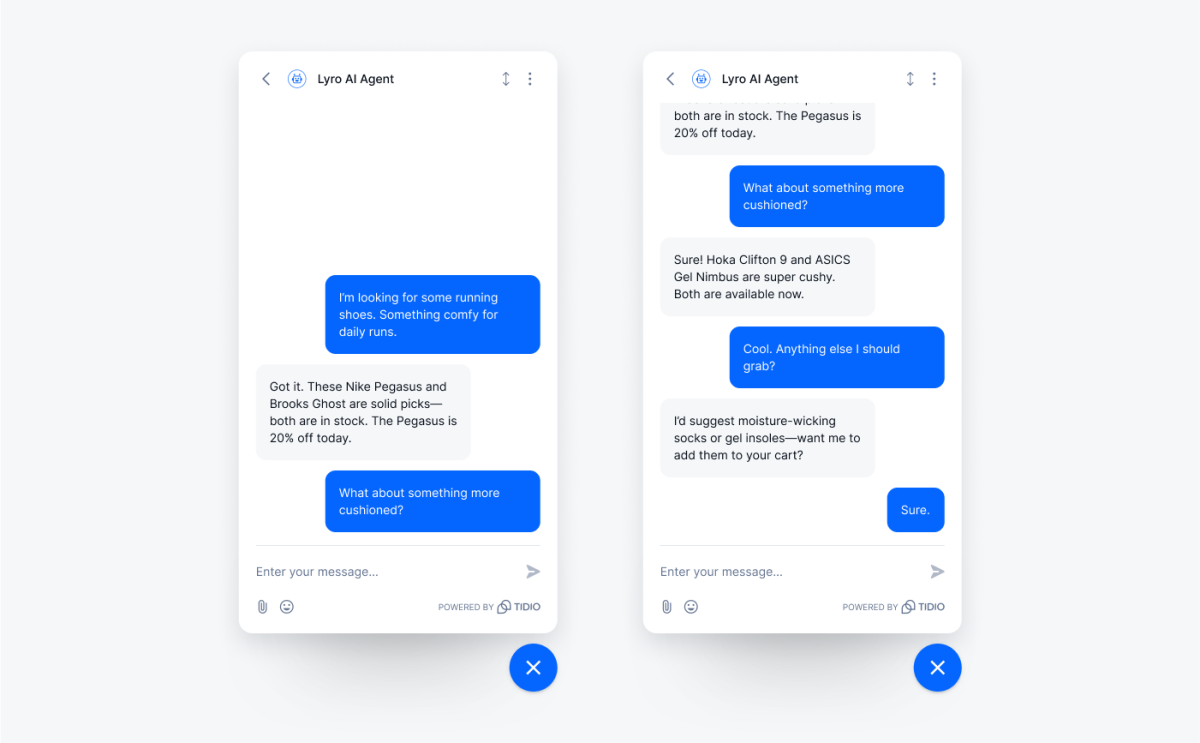
Lyro AI Agent by Tidio handles repetitive tasks like shipping updates and account questions using natural language. It can also excel when things get tricky, like a missing refund or a billing error. However, as it’s trained on the data you provide via your knowledge base, it doesn’t hallucinate answers and passes the ticket to a human agent with full context whenever it can’t resolve an issue.
This blend reduces workload for agents while keeping customer satisfaction high.
For example, Axioma boosted their car body repair customer experience with Tidio’s Lyro AI, achieving an impressive 89% AI resolution rate and increasing sales bot engagement to 21%.
What does this mean for support teams and careers?
To stay relevant, support professionals need to evolve. The soft skills still matter (think empathy, problem-solving, communication, etc.), but tech fluency is now critical. Here’s where AI for customer service shines the brightest:
- Prompt writing: knowing how to get the right output from an AI tool
- Tool fluency: navigating support platforms, customer service chatbots, and AI assistants
- Customer insight: turning feedback into product or process improvements
Using AI for customer service is no longer just about answering tickets. It is now becoming a strategic function.
Read more: Check out the latest customer service trends to make sure your team stays competitive.
Key takeaways: AI-powered future of customer service is here to help, not take over
Artificial intelligence customer service is evolving rapidly, but the tech is not fully replacing humans.
The tasks and the tools are changing, with the future of AI in customer service looking as bright as ever. But the need for human judgment, empathy, and adaptability isn’t going anywhere.
Teams that blend AI for customer support and human effort are already seeing the benefits: faster replies, better insights, and more time to focus on real customer value.
For agents, this means opportunity, not extinction.
The future of AI and customer service isn’t AI vs. humans. It’s AI with humans, and there’s no time like the present to make that shift.
Automate your customer service with Lyro AI agent

